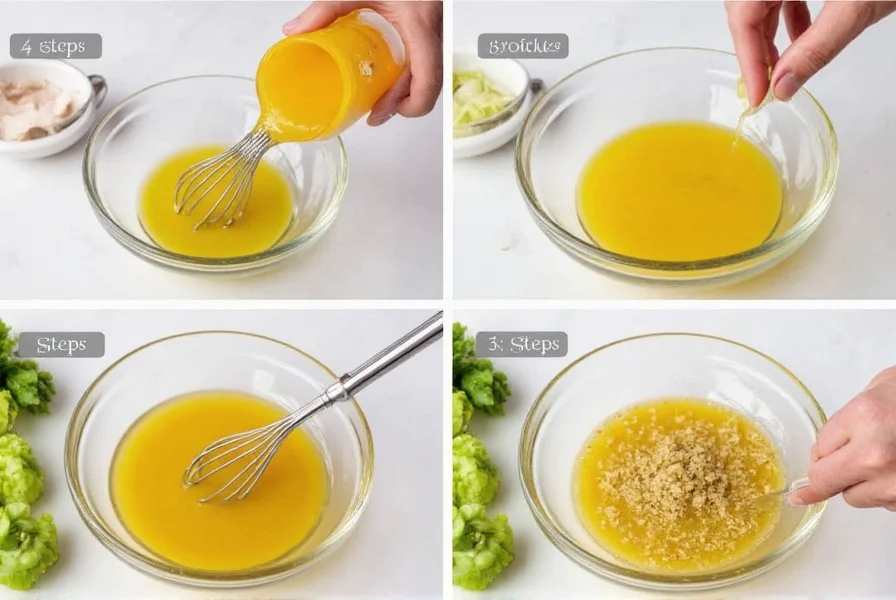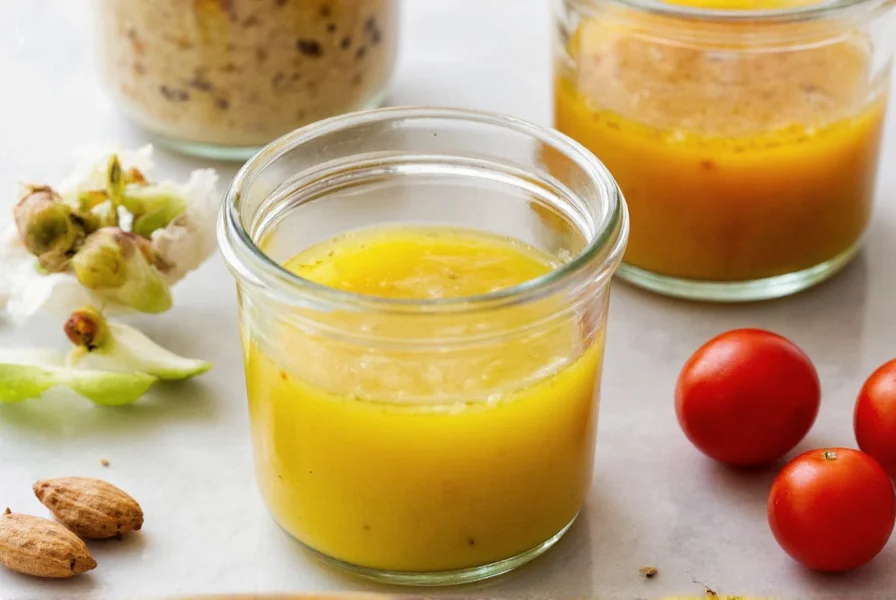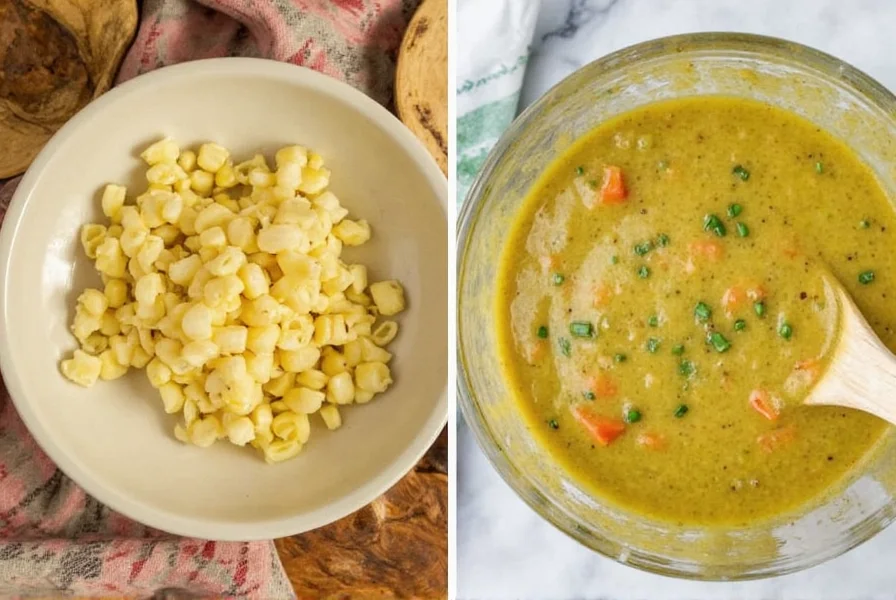Homemade ginger dressing is fresher, healthier, and more flavorful than store-bought versions. The perfect ginger dressing combines freshly grated ginger, rice vinegar, sesame oil, and a touch of sweetness for balance. Most recipes require just 5-7 ingredients and take under 10 minutes to prepare. This versatile dressing works beautifully with salads, as a marinade, or as a dipping sauce. The key to exceptional ginger dressing lies in using fresh ginger root and properly balancing the sweet, sour, salty, and umami elements.
Creating your own ginger dressing unlocks a world of fresh flavors that bottled alternatives simply can't match. Unlike commercial dressings packed with preservatives and excessive sugar, homemade versions let you control every ingredient while delivering vibrant, authentic taste. Whether you're crafting a simple side salad or preparing an elaborate Asian-inspired meal, the right ginger dressing elevates your dish from ordinary to extraordinary.
Why Homemade Ginger Dressing Beats Store-Bought
Commercial dressings often contain hidden sugars, artificial preservatives, and unhealthy fats. When you make ginger dressing from scratch, you gain complete control over ingredients and flavor balance. Fresh ginger provides more complex, vibrant flavor than the powdered version found in many store-bought dressings. Plus, homemade dressing costs significantly less per serving while delivering superior taste and nutritional value.
Essential Ingredients for Perfect Ginger Dressing
The magic of ginger dressing comes from the careful balance of key components:
| Ingredient Category | Options | Flavor Contribution |
|---|---|---|
| Ginger | Fresh grated, minced, or paste | Spicy, warm, aromatic base flavor |
| Acid | Rice vinegar, apple cider vinegar, lime juice | Brightness and tang to balance richness |
| Oil | Sesame oil, avocado oil, olive oil | Richness and emulsification base |
| Sweetener | Honey, maple syrup, sugar | Counteracts acidity and enhances ginger flavor |
| Umami | Soy sauce, tamari, fish sauce | Depth and savory complexity |
Classic Fresh Ginger Dressing Recipe
This foundational recipe creates a perfectly balanced dressing that works with virtually any salad or vegetable dish.

Ingredients
- 2 tablespoons freshly grated ginger (about 1-inch piece)
- 3 tablespoons rice vinegar
- 2 tablespoons neutral oil (avocado or grapeseed)
- 1 tablespoon sesame oil
- 1 tablespoon honey or maple syrup
- 1 tablespoon soy sauce or tamari
- 1 clove garlic, minced
- 1 teaspoon toasted sesame seeds (optional)
Instructions
- Peel the ginger using a spoon (easier than a peeler) and grate finely on a microplane
- In a small bowl, whisk together vinegar, honey, soy sauce, and grated ginger
- Slowly drizzle in both oils while continuously whisking to create an emulsion
- Add minced garlic and sesame seeds, then whisk to combine
- Taste and adjust seasoning as needed (more ginger for heat, honey for sweetness, or vinegar for tang)
- Let sit for 15 minutes before using to allow flavors to meld
Popular Ginger Dressing Variations
Once you've mastered the basic recipe, these variations let you customize for different dishes and dietary needs:
Asian-Inspired Ginger Dressing
Boost the umami with 1 teaspoon fish sauce and substitute lime juice for half the vinegar. Add 1 teaspoon sriracha for heat and garnish with thinly sliced scallions. This version works perfectly with noodle salads and grilled meats.
Vegan Ginger Dressing
Replace honey with pure maple syrup and use tamari instead of soy sauce for a gluten-free option. For creamier texture without dairy, blend in 1 tablespoon of silken tofu or tahini.
Creamy Ginger Dressing
Add 2 tablespoons of Greek yogurt or coconut milk for a richer texture. This variation clings beautifully to heartier greens like kale and works wonderfully as a vegetable dip.

Pro Tips for Perfect Ginger Dressing Every Time
Professional chefs rely on these techniques to create consistently excellent ginger dressing:
- Use fresh ginger root - Avoid pre-minced ginger in jars for superior flavor
- Grate ginger finely - A microplane creates the best texture for even distribution
- Balance flavors methodically - Adjust one element at a time, tasting after each addition
- Let it rest - Allowing the dressing to sit for 15-30 minutes before use improves flavor integration
- Shake before using - Natural separation occurs; a quick shake re-emulsifies the dressing
How to Use Ginger Dressing Creatively
Beyond salad dressing, ginger dressing serves multiple culinary purposes:
- Marinade - Excellent for chicken, salmon, or tofu (use for 30-60 minutes)
- Dipping sauce - Perfect for spring rolls, dumplings, or roasted vegetables
- Grain bowl dressing - Drizzle over quinoa, rice, or farro bowls
- Stir-fry sauce base - Thin with a bit of water or broth for cooking
- Roasted vegetable finish - Toss with warm roasted vegetables before serving
Troubleshooting Common Ginger Dressing Issues
Even experienced cooks encounter these common problems:
- Dressing too spicy - Add more sweetener or oil to balance the heat
- Dressing too sweet - Increase vinegar or citrus juice incrementally
- Dressing separates - Whisk vigorously or use a small blender to re-emulsify
- Flavor too weak - Let sit longer or add more ginger (grated very fine)
- Too salty - Add a touch more sweetener and acid to counterbalance
Storage Guidelines
Store ginger dressing in an airtight container in the refrigerator for up to one week. The ginger flavor will intensify over time, so you may need to adjust other elements when using older dressing. For longer storage, freeze in ice cube trays then transfer to freezer bags for up to three months. Thaw in the refrigerator before use.
How can I make ginger dressing less spicy?
Reduce the amount of ginger or use young ginger which is milder. You can also balance the heat by increasing the sweetener or oil content. Another option is to let the dressing sit for several hours before using, as the sharpness of fresh ginger mellows over time while the flavor becomes more integrated.
Can I use ground ginger instead of fresh?
While fresh ginger is always preferred for superior flavor, you can substitute ground ginger in a pinch. Use 1/4 teaspoon ground ginger for every tablespoon of fresh grated ginger. Keep in mind that the flavor profile will be different—ground ginger has a warmer, more earthy taste compared to the bright, spicy notes of fresh ginger.
Why does my ginger dressing separate?
Separation occurs because oil and vinegar naturally don't mix. To prevent this, ensure you're slowly drizzling the oil while continuously whisking to create a stable emulsion. Adding a small amount of Dijon mustard (about 1/2 teaspoon) can help stabilize the emulsion. If separation happens, simply shake or whisk vigorously before use.
What's the best way to store fresh ginger?
Store unpeeled ginger root in the refrigerator wrapped in a paper towel inside a resealable plastic bag. It will keep for 2-3 weeks. For longer storage, freeze whole ginger pieces which can be grated frozen without thawing. Never store ginger at room temperature as it will dry out quickly.
How long does homemade ginger dressing last?
Properly stored in an airtight container in the refrigerator, homemade ginger dressing lasts 5-7 days. The acidity from the vinegar helps preserve it, but because it contains fresh ingredients without commercial preservatives, it doesn't last as long as store-bought versions. Always check for any off smells or mold before using.











 浙公网安备
33010002000092号
浙公网安备
33010002000092号 浙B2-20120091-4
浙B2-20120091-4